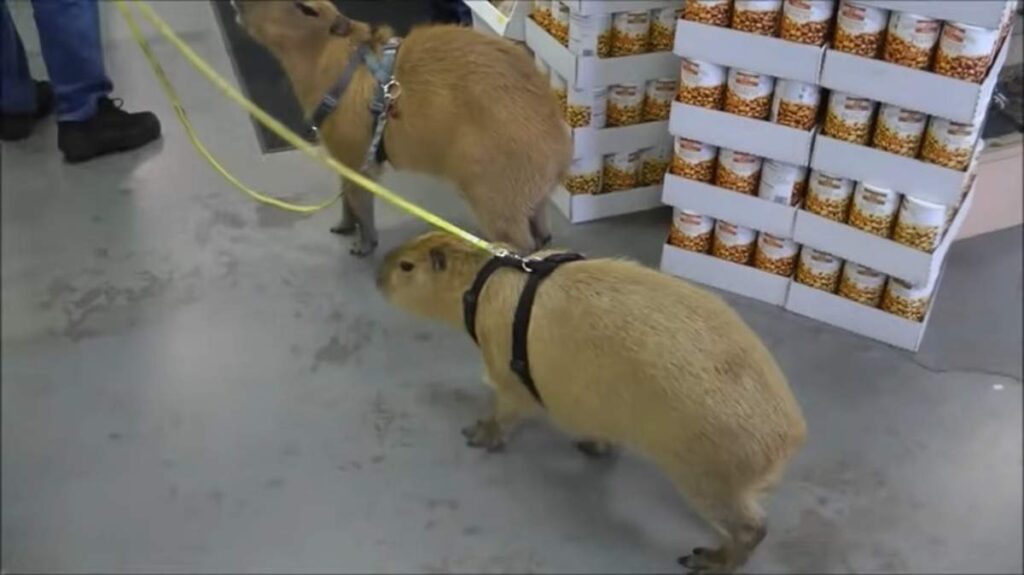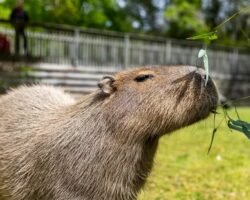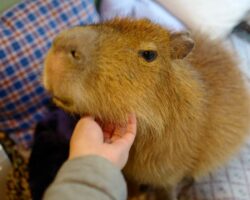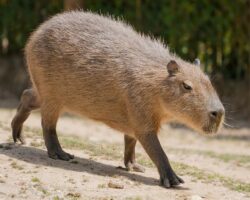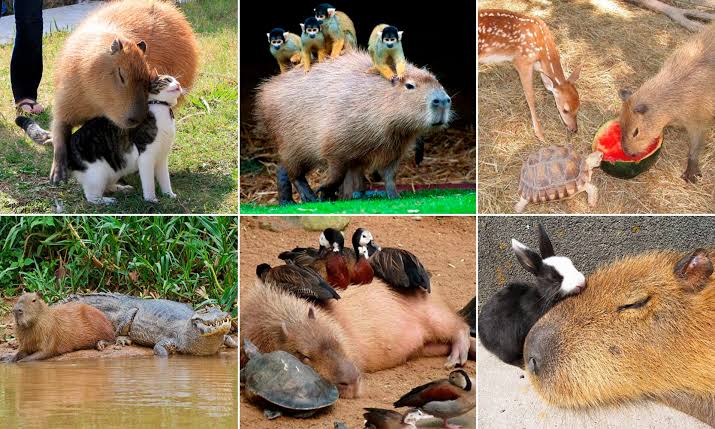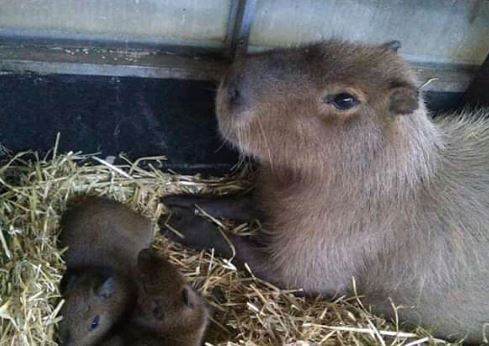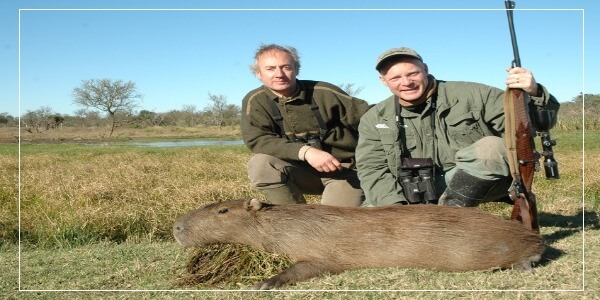If you’re a resident of Virginia, you’re probably wondering whether capybaras are legal companions in your state. In this blog post, we’ll dive into the fascinating world of capybaras and explore the legality of owning these adorable creatures in the beautiful state of Virginia.
Before we embark on this adventure, it’s important to note that capybaras are not your everyday run-of-the-mill pet. They have unique characteristics, care requirements, and legal considerations you must know. So, let’s explore the legal landscape and find out if you can bring a capybara into your Virginia home.
Are Capybaras Legal in Virginia?
Yes, capybaras are legal to own as pets in Virginia. While Virginia does not have specific regulations prohibiting capybara ownership, it is always important to check with local ordinances or county regulations to ensure compliance. As with any exotic pet, responsible ownership is crucial.
If you’re considering getting a capybara in Virginia, there are a few things to remember. First, ensure you have the appropriate space to accommodate a capybara’s needs. They require a large enclosure with access to water for swimming. Additionally, capybaras have specific dietary requirements and need a varied diet of fresh fruits, vegetables, and grasses.
Finding a reputable breeder or seller who can provide a healthy and well-socialized capybara is also advisable. While they are generally friendly and sociable, proper socialization and care are important for their well-being.
Remember to check with local authorities to ensure there are no restrictions on the number of capybaras you can own. Be prepared for the long-term commitment of caring for these unique and fascinating creatures.
RECOMMENDED
What Are the Specific Laws or Regulations Governing Capybara Ownership In Virginia?
While capybaras are fascinating creatures known for their social nature and gentle demeanor, it’s crucial to ensure that you comply with the law before bringing one into your home.
1. Research Local Ordinances
Capybara ownership laws may vary locally in Virginia, so it’s essential to research the specific ordinances in your city or county. Contact your local government offices or consult municipal codes to determine if any restrictions, permits, or licenses are required.
2. Exotic Animal Laws
Virginia does not have specific laws addressing capybara ownership. However, capybaras are considered exotic animals, and general laws regarding the ownership of exotic pets may apply.
Ensure you comply with any applicable exotic animal laws that may regulate the ownership, importation, or transportation of exotic animals.
3. Wildlife Regulations
Although capybaras are not native to Virginia, it’s crucial to consider wildlife regulations. The Virginia Department of Wildlife Resources (DWR) oversees the state’s management and conservation of wildlife.
Contact the DWR to inquire about specific regulations or permits to keep capybaras.
4. Zoning Restrictions
Local zoning regulations may affect Capybara ownership. Some areas in Virginia have zoning restrictions that dictate the types of animals allowed in residential or agricultural zones.
Ensure your property is zoned appropriately for owning capybaras, or check if any special provisions or permits are available.
5. Animal Welfare and Care
Regardless of specific laws, you must provide proper care and welfare for your capybara. Ensure that you meet their housing, dietary, and healthcare needs. Familiarize yourself with best practices for capybara care and consult with exotic animal veterinarians for guidance.
6. Liability and Insurance
Consider liability and insurance aspects related to Capybara ownership. While there may not be specific laws, you must protect yourself and others in case of any incidents involving your capybara.
Consult with insurance providers to understand if additional coverage or liability protection is necessary.
Do I Need a Permit or License to Own a Capybara In Virginia?
There are no specific regulations or requirements about capybara ownership in the state. However, it is important to note that laws can change, and local ordinances or county regulations may have their own rules regarding exotic pet ownership.
While no permits or licenses are generally required, contacting your local authorities or animal control agencies is still advisable to confirm the current regulations. They can provide you with the most up-to-date information and any additional guidelines that may be in place.
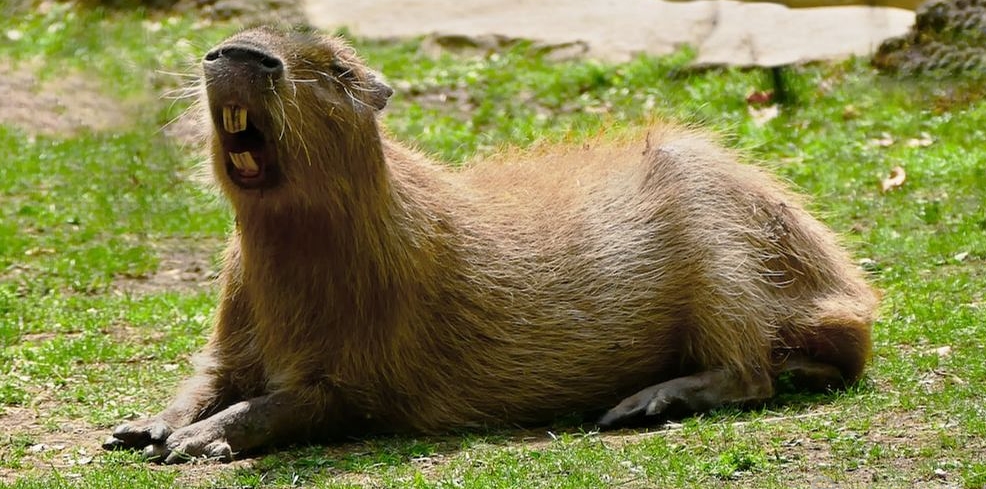
Remember, responsible ownership is crucial even if no permit or license is needed. It is essential to provide proper care, a suitable environment, and meet all the needs of your capybara to ensure its well-being and comply with any general animal welfare laws.
Where to Find Reputable Capybara Breeders or Sellers in Virginia
While capybaras are legal to own as pets, it’s crucial to locate a reliable seller that prioritizes the health and welfare of these unique animals. Below are some of the trusted places to get a Capybara:
1. Research Online
Start your search by exploring online platforms dedicated to exotic pet listings. Websites like ExoticAnimalsForSale.net, Hoobly.com, or MorphMarket.com often have sections for capybara breeders or sellers.
Use location filters and carefully read the seller’s profile and reviews to gauge their reputation.
2. Exotic Pet Shows and Events
Attending exotic pet shows and events in Virginia can allow one to meet Capybara breeders in person. These events often have reputable breeders who specialize in exotic animals.
It allows you to ask questions, view the animals, and assess the professionalism and knowledge of the sellers.
3. Exotic Animal Rescues
Contact local veterinarians who specialize in exotic animals or animal rescues in your area. They may have contacts with reputable Capybara breeders or sellers or be able to provide recommendations based on their experience in the field.
4. Join Exotic Pet Enthusiast Groups and Forums
Online communities and forums dedicated to exotic pet enthusiasts can be valuable sources of information. Joining groups on social media platforms like Facebook or forums like Reptileforums.co.uk or ThePuppyNetwork.com can connect you with experienced Capybara owners who can provide recommendations or referrals to reputable breeders or sellers.
5. Networking with Capybara Owners
Engage with existing Capybara owners in your local area. They may have insights into reliable breeders or sellers they have dealt with in the past or be aware of upcoming litters or available capybaras for adoption.
6. Local Exotic Animal Associations or Clubs
Check for any local exotic animal associations or clubs in Virginia. These organizations often have resources and directories of reputable breeders or sellers. They can provide guidance and connect you with trusted sources.
Risks and Considerations of Capybara Ownership In Virginia
- Behavior and Socialization: They have the instinct to live in groups, so providing companionship is essential. Capybaras may become stressed, anxious, or even aggressive without proper socialization. Time and effort are required to ensure their well-being and provide interaction opportunities with humans and other animals.
- Space and Enclosure: A suitable enclosure should provide enough room for exercise and exploration, including access to water for swimming. A secure and spacious outdoor or indoor enclosure is crucial to meet their physical needs.
- Dietary Requirements: Proper nutrition is vital for capybaras’ health. They have a unique herbivorous diet consisting of various fresh fruits, vegetables, and grasses. Meeting their dietary needs can be challenging and may require significant time and resources to ensure a balanced and appropriate diet.
- Veterinary Care: Regular check-ups are essential to monitor your capybara’s health and catch any potential issues early on. A knowledgeable veterinarian will conduct thorough examinations, provide appropriate vaccinations, and offer preventive care tailored to capybaras. This includes addressing dental health, checking for parasites, and administering necessary medications.
- Long-Term Commitment: Daily care is essential for Capybaras to thrive. This includes providing a proper diet, maintaining their enclosure, and attending to their grooming needs. Additionally, capybaras are highly social animals that require ample attention and interaction. They thrive in environments where they can engage in play, exploration, and bonding with their human caregivers. Mental stimulation is equally crucial.
- Legal and Zoning Considerations: It’s advisable to contact your local animal control or county officials to inquire about any specific guidelines or permits that may be required. They can provide valuable information on any limitations or restrictions in your area. By being proactive and ensuring compliance with all applicable regulations, you can ensure a smooth legal transition for your Capybara companion. It’s essential to prioritize the animal’s welfare and respect the laws and regulations to maintain the well-being of the Capybara and the community in which you reside.
RELATED POSTS:
Conclusion
Capybaras are generally legal to own as pets in Virginia, but it’s important to do your due diligence and understand your local area’s specific regulations and requirements.
While the state may permit capybara ownership, it’s crucial to check with your local animal control or county officials to ensure compliance with any additional restrictions or zoning requirements.
By taking the time to research and understand the laws surrounding capybara ownership, you can ensure a smooth and legal process for bringing a capybara into your life.
Respecting these regulations not only ensures the well-being of the capybara but also maintains harmony within your community.

